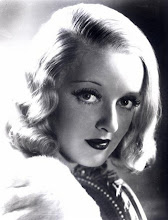Well, kids, I made it. I’m writing to you live from the Cannes Film Festival in Cannes, France. Don’t expect regular updates for a while (does anyone still expect regular updates from me?) because I’m working my
derrière off, to use the local vernacular. But, I’ll do what I can.
Early in the festival I had the amazing opportunity to see a newly-restored print of
From Here to Eternity projected onto a giant screen on the beach. This was my first time seeing the film, believe it or not, so obviously I jumped at the chance.
The movie itself definitely lived up to the hype. I thought it was interesting to see a film from 1953 set around Pearl Harbor, because it presented a critical view of the military that certainly would not have gotten past the censors had the war still been going on. For example, Warden routinely manipulates and makes a fool of his superior, Holmes; officers would never have been looked down upon like that in a wartime flick. I also thought that the film had a mood of inevitability in the scenes leading up to the attack that might possibly have mirrored the general mood of the public in the 1950s -- that is, the idea that war would break out at any moment. I saw this parallel particularly strongly when Warden and Karen were in the car discussing their future, and he told her, "We're sure to be into a war by then."
The role of the two women in this film is also very interesting. It definitely showcases post-war attitudes about a woman's place being in the home; Karen defines waste as "a house without a child," and her back story revolves around being unable to have children, as though that's what determines her sense of self-worth. Alma, who goes by Lorene, has a job of her own, but it's not considered respectable; she dreams of marrying rich. The goals of both women are completely dependent on men. For this reason, I thought it was fascinating that the film closes on them rather than on the soldiers.
Unfortunately, the screening wasn't as picture-perfect as it sounded in theory. There was another beach-side event on a pier close by, and the music from that drowned out much of the beautifully restored soundtrack for parts of the movie, including the iconic scene of Burt Lancaster and Deborah Kerr rolling in the surf. Fireworks in the ocean, though pretty, were also a distraction. Still, seeing the film at all was a wonderful way to start the festival; I just wish the exhibition had done it justice.



